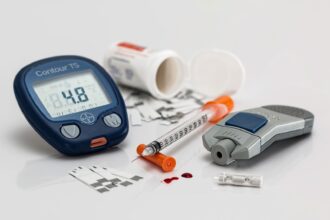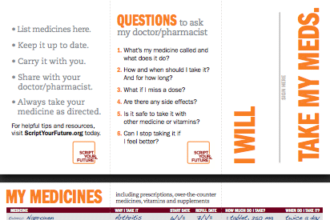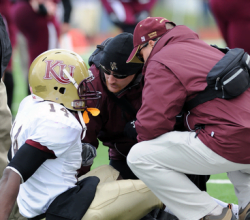Sadly, cancer is all too common. In 2020, there were approximately 18.1 million cancer cases around the globe. Therefore, it is important that you are aware of common cancer symptoms.
The Importance of Diagnosing Cancer as Early as Possible
Diagnosing cancer early on is very important for multiple reasons. It means people with cancer can access treatment options sooner to stop the cancer from worsening. It also means they can access a greater range of treatment options, improve their long-term survival, and enhance their quality of life.
Early diagnosis of cancer also enables people with cancer to reduce the costs of treatment and care. Quite simply, when cancer is discovered during the early stages, people have a better chance of surviving and living a more active and fulfilling life.
Furthermore, when cancer patients receive treatment early and are able to survive for longer, they can benefit from new treatments that come on the scene. Who knows, a complete cure for cancer could even be found.
So, it should be clear just how important it is that cancer is diagnosed as soon as possible. But even when people visit doctors because they have noticed warning symptoms that could potentially be signs of cancer, unfortunately, a misdiagnosis could happen.
At least if a medical professional is negligent by misdiagnosing your cancer or delaying the diagnosis, you can pursue compensation. Check out this post at Delayed Cancer Diagnosis to learn more.
Common Symptoms That Could Be Signs of Cancer
Now, let us take a look at seven common warning symptoms that could be cancer. But before we do so, it is worth pointing out that the following symptoms do not necessarily mean you have cancer. The symptoms could be signs of numerous other health conditions. Understanding the Myths vs. Facts About Cancer Symptoms can help clarify any misconceptions.
That is why it is so important that you visit a doctor to receive a diagnosis. If you experience any of the following symptoms for more than just a few weeks, you must contact your doctor as soon as possible.
Fatigue
Fatigue refers to feeling extreme tiredness regardless of how much you rest. Fatigue is different from simply feeling very tired after a hard day’s work. It permeates your very core.
The reason people with cancer can feel fatigued is that the cancer uses the nutrients in their bodies to grow. The nutrients are not replenished. Thus, sufferers can feel extreme fatigue.
Unexplained Weight Loss
If you are not on a diet or a fitness plan or doing anything else to reduce your weight, and you experience dramatic weight loss, it could be symptomatic of cancer. Extreme weight loss typically refers to losing ten or more pounds.
If you notice dramatic unexplained weight loss, you should speak to your doctor immediately. While weight loss can be a sign of other conditions, like diabetes, in terms of cancer, weight loss is most associated with cancers of the stomach, pancreas, lungs, and esophagus.
A Change in Bladder Function or Bowel Habits
It is common for things like diarrhea and constipation to happen from time to time, but if you have long-term diarrhea, constipation, or a change in stool size, it could potentially be a symptom of colon cancer.
Pain when you pee, blood in your urine, or an alteration in your bladder function, such as passing urine more or less often than you usually do, could also potentially indicate you have cancer; particularly bladder or prostate cancer.
Again, if you notice such long-term symptoms, make sure you see your doctor as soon as you can.
Fever
If you get a fever, it could mean you have one of many different illnesses. But it could potentially mean you have cancer. Typically, people with cancer only experience fevers after the cancer has spread.
Pain
Different pains could be symptoms of different types of cancer. For example, if you have a persistent headache that will not go away, it could potentially be a sign that you have a brain tumor.
If you experience long-term back pain, it could signify that you have colon, rectum, or ovarian cancer. Pain associated with cancer can occur in many other places on your body too.
Unusual Bleeding
Unusual bleeding is a common symptom in early or advanced cancer. Bleeding could refer to coughing up blood, finding blood in your stool, or experiencing abnormal vaginal bleeding.
Also, blood in the urine is a common symptom of bladder cancer or kidney cancer and bloody discharge from nipples is a common sign of breast cancer.
Changes in Your Skin
There are lots of kinds of skin changes that could mean you possibly have cancer. Major warning signs are hyperpigmentation, jaundice, reddened skin, and excessive hair growth.
If you spot any new lesions or moles, they could also be signs of cancer, as could sores that itch, bleed, or do not heal.
Thankfully, when skin cancer is caught early on, the chances of eliminating the cancer are very high.








